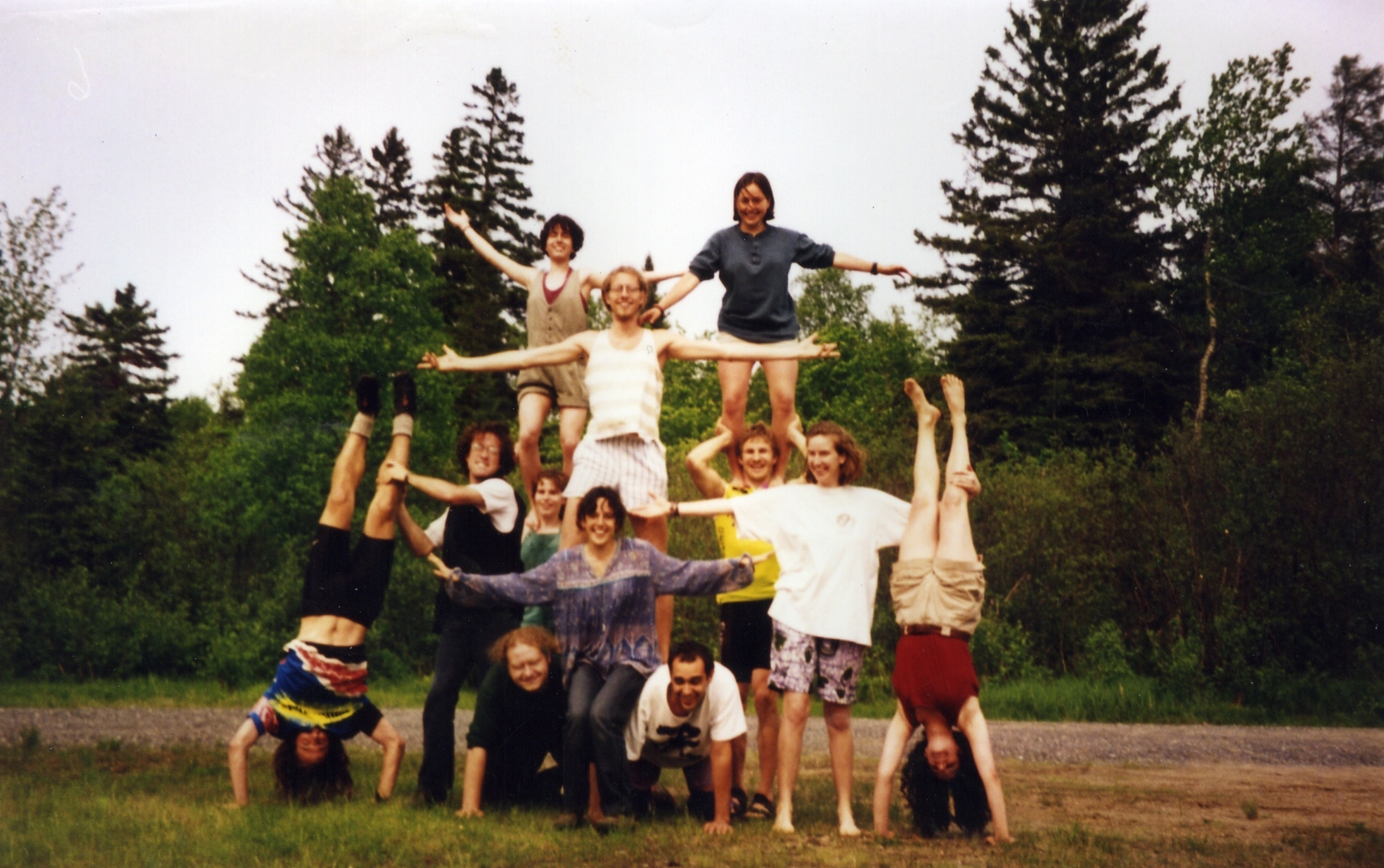1993
Beginning of Équiterre
Équiterre is founded by 6 youth: Steven Guilbeault, Patrick Henn, Elizabeth Hunter, François Meloche, Sidney Ribaux and Laure Waridel.

Ongoing
In 1993, a group of young people came together to build a better world. A world where the food we eat is healthy and environmentally responsible, where we can get around via active and shared transportation, where we speak out and mobilize against destructive projects and mobilize in favour of societal projects that enhance and protect our communities, our planet and all species that live on it.

30 years later, a vast community of members, volunteers, employees, supporters and partners continues to push toward this common goal. We’re part of a powerful, growing and impactful movement, working in collaboration with a multitude of actors.
Équiterre is working to establish new principles for how we feed ourselves, how we get around and how we produce and consume, that are designed for our communities, respectful of our ecosystems, in line with social justice and of course, low in carbon.
Through research, support, education, mobilization and awareness building initiatives, Équiterre has been working for over 30 years to create favourable conditions in which systemic change is possible.
Équiterre is founded by 6 youth: Steven Guilbeault, Patrick Henn, Elizabeth Hunter, François Meloche, Sidney Ribaux and Laure Waridel.
Carbon neutral events that brought together hundreds of cyclists on different routes in Quebec to discover inspiring local initiatives in organic agriculture, sustainable mobility and regional environmental issues.
Based on the principles of community supported agriculture (CSA), Équiterre developped the organic basket model in Quebec to encourage local and organic food.
A vast awareness-building effort to encourage fair trade products in Quebec.
Our demonstration project on how to build sustainable buildings, in cooperation with a number of groups
Launch of the Shop Smarter, Eat Better microsite, providing consumers with concrete solutions for healthy eating that won't break the bank or ruin the planet.
The pace of the transition is still too slow, but we’ve come a long way and we’ve made considerable progress in the past three decades. Quebecers are very aware and mobilized on environmental issues.
“ We must be proud of how far we’ve come and we must push forward together! ”
41%
of Équiterre’s funding comes from individual donors
With the support of the community, we’re creating awareness and changing social norms. Your donations have helped us to assemble a team of committed experts, actively engaged in setting the record straight, denouncing the socio-environmental inaction of our decision-makers, but also in collaboration, sharing knowledge, seeking new ways of doing things and inspiring change across the country.
Through dialogue and openness, and with a focus on vulnerable communities who are being affected the most by the bioclimatic crisis, we’re continuing with our important work to improve the world.
The larger our movement, the stronger and more powerful our influence. Thank you for standing with us.








